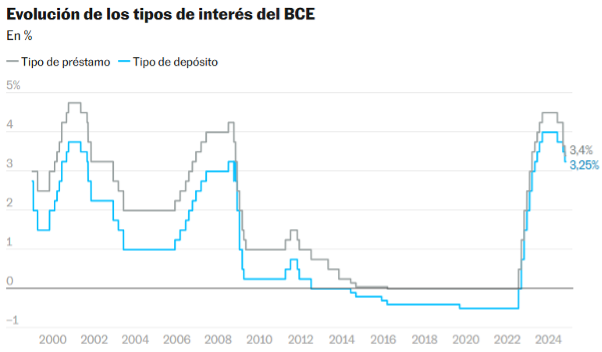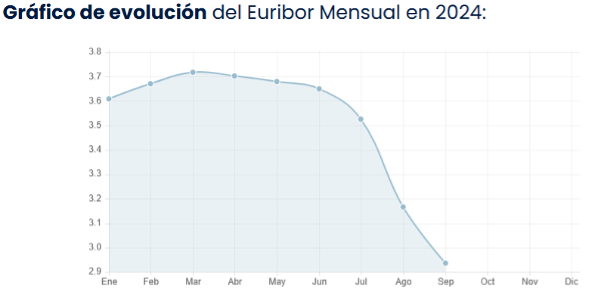I was travelling back to Brittany by train from Luxembourg on Friday 26 July. A day that may have been remembered for it being the opening ceremony of the Olympics in Paris. I expected some disruption due to the sheer number of people visiting Paris, but I’d no idea what would happen next.
Off The Rails
By Michael Doyle
This article is published on: 1st November 2024

If you don’t know by now the rail network was attacked by vandals who set fire to the fibre optics on the tracks and in doing so put almost 800,000 train services “off the rails”.
What I was impressed by was the network’s response. They had police at most if not all stations affected, they increased the labour rate and what could have been a disaster was handled swiftly and efficiently, with trains back running within two days.
As financial planners, we sometimes have to deal with unforeseen and disruptive events. What happened on the rail network was totally unexpected. As a financial planner, I’ve had to guide my clients through the following over recent years:
- The Brexit referendum and stock-market response that followed
- Donald Trump’s election as US president
- Covid (when stock-markets all but shut down)
- The Russian invasion of Ukraine
- Trump losing to Biden
The main thing my clients were happy with was that I provided reliable guidance on investment repercussions and how to address the events.
This was through either:
- Reviewing and validating their existing investment strategies
- Rebalancing portfolios to ensure still aligned with agreed investment objectives
- Discussing tactical opportunities in response to market conditions
- Proposing suitable investment funds or asset managers
- Reassessing their attitude to risk
So if you had a nervous time with your own financial planning during those uncertain times, or indeed at any time, give me a call and we can work together to ensure you remain “on track” to achieve your financial goals.
The relationship with a financial adviser
By Victoria Lewis
This article is published on: 31st October 2024

The majority of individuals that receive professional financial advice across the UK have remained with the same adviser throughout, a new study by St. James’s Place (SJP) reveals, highlighting the power of longstanding advice relationships. Just under 12,000 UK adults were surveyed this year and the results show financial advice and guidance can benefit immensely.
More than 62% have never switched their financial adviser, rising to nearly 75% for those aged 35 and over.
The study also found that the typical relationship with a financial adviser or advice firm lasts around 7 years, but this increases to over a decade for those aged 55 and over – with nearly 31% of this generation having been with their adviser for 16 years or more.
Trust, understanding and financial satisfaction are the main reasons for never switching financial adviser:
• Trusting their adviser
• Being happy with the advice and financial returns their adviser has delivered
• Their adviser understanding their financial situation
• Having a good relationship with their adviser which has been built over several years
• Their adviser understanding their long-term goals and helping to deliver them
• Their adviser looking after both them and their family
• Their adviser having helped them through big life stages/ moments

SJP said: “Financial advice is about much more than numbers on a page or graphs on a screen.
It’s about building deep, meaningful relationships, and as our research shows these can last many years and span generations.
Whether you’re navigating the early stages of wealth creation, planning for retirement, or managing an unexpected life change, having a trusted adviser by your side can make all the difference.
These were the main reasons cited for working with a financial adviser on an ongoing basis:
• Putting the foundations in place for a stronger financial future
• Helping them to save more money for retirement
• Ensuring they have adequate protection in place if they need it
• Getting on the property ladder
• Navigating difficult periods like divorce or bereavement
• Pass on money to their children or loved ones
• Better manage the cost of raising children
• To provide more financial support to elderly family members
Andy Payne continues: “These goals, moments and milestones may be common to many throughout their lives, but the specific circumstances will always be unique. Having support from an expert financial adviser, with not just the technical expertise but the empathy to deploy it sensitively and with their clients’ needs in mind, can be the difference between a hope dashed and a dream realised.”
If you have already have a financial adviser but doubt if they are the right person for you, perhaps it’s time for a change?
Or perhaps have you been struggling to navigate your financial planning on your own?
I have worked with Spectrum as an International Financial Adviser for over 21 years and still look after my clients who worked with me from the very beginning. I advise the children of my clients now and even other family members too.
The synergy I have with my clients is because we understand each other – our relationship is based on trust and confidence and I know it’s an enjoyable experience because they recommend me to their family and friends. That’s the greatest endorsement I could wish for.
ECB Rate Cuts
By Spectrum IFA
This article is published on: 30th October 2024

June, September, and now October. The European Central Bank (ECB) has lowered the interest rate by 25 basis points, marking its third rate cut in 2024 and the second consecutive reduction—a sequence not seen in 13 years (see graph).
Inflation is now at 1.7%, its lowest level since April 2021 and below the 2% target.

The ECB’s last meeting of the year will be on December 12th . Monetary analysts predict four more rate cuts by mid-2025, to be followed by a period of stability. According to the ECB’s survey, marginal rate adjustments could occur in 2026, especially in the first half, which would bring rates to around 2% for that year.
As a result, the Euribor has declined. In October, the monthly Euribor rate stood at 2.711%, a decrease of 0.225 points from the previous month’s 2.936%. Starting 2024 at 3.609%, the Euribor has accumulated a total drop of 0.898 points over the year, as illustrated in the accompanying table and graphs.

As a result, we are starting to see a reaction from the banks. With inflation now at a low and the Euribor experiencing steady declines, further cuts are expected into 2025. This trend has prompted a cautious response from banks, which are gradually reducing interest rates. As the ECB signals possible marginal adjustments by 2026, the Eurozone may enter a phase of rate stability, providing a potentially favourable environment for both borrowers and lenders.
Should you have any inquiries regarding the content of this article, or any other questions relating to mortgages in Spain, please do not hesitate to reach out to us for further information.
Patricia Nadal
spain@spectrum-mortgages.com
Searching for a financial planner
By Michael Doyle
This article is published on: 29th October 2024

It can be a daunting experience!
I started my life in financial planning in Glasgow, Scotland, back in 1998. I moved to Luxembourg in 2008 and began to cover both Luxembourg and Brittany (France) from 2019. I’m not sure where the years have gone, but I am grateful to have worked with some fantastic clients during that time from the likes of KPMG, Champs, The ISL (Luxembourg), UBS, St George’s School, Greenfield Recruitment and the list goes on and on.
I understand that initially my clients sometimes feel nervous when they come to see me as they are probably about to make one of the biggest financial decisions of their lives. I try to put myself in their position to try to fully understand what they need. To help my clients I’ll ask such questions as:
- I understand that you will be looking to work with me or someone like me. Let’s say that we start working together and we’re 12 months ahead of now. What three things did I do that made you happy you employed my services?
- Tell me three things I must always do and three things I should never do.
- What is your golden ticket? By that I mean, when we get to the end of the investment term, what is the goal we are saving for and what does that look like to you?
- If you have used a financial planner in the past what was the best thing about them and what was the worst thing about them?
After I gather all of the hard facts – the basics from name, address, money coming in and money going out, cash and investment holdings, to your immediate and longer-term planning priorities, plus your investment knowledge and attitude to risk – we call an end to the first meeting, and I start researching and preparing a suitable recommendation. This written proposal is carried out at no cost and entirely without obligation.

Why do I not charge for my reports? Simply because I want my clients and prospective clients to see how I work before they commit to using my services. Note that in our initial meeting I also explain fully how I am remunerated and the extent of my service offering, from introductory engagement through to long term reviews and support.
My report is then presented and explained, to allow clients do their homework and cross reference what I am saying with their own research. Then we have a second meeting when I will answer any remaining questions.
At this point the clients are invited to take some time to think over the recommendation and come back to me with any final questions they may have. Only at this point will we move to the final step in the advice process, which is completion of outstanding paperwork to implement the plan and set the investment in place. From here, my commitment to ongoing client service and support is open-ended. My aim in all of this is to grow and protect my clients’ wealth as tax efficiently as possibly whilst developing long-term and productive relationships.
It’s a Classic!
By Michael Doyle
This article is published on: 23rd October 2024

I’m not a big fan of cars. I just never really got interested in them when I was growing up and couldn’t even tell you where to put the windscreen wash when you open the bonnet (hood for our American friends who may be reading this).
However, I can look at a car and think “Oh that’s nice”.
Saying that, a funny thing happened to me the other day while I was out walking in Luxembourg: a classic car passed me on the road and then I passed two others which were parked.
These were all beautiful cars. So much so that I stopped and looked in the window of the third car, which was an old Jaguar. The owner had kept it beautifully – the leather was still top quality and the look inside was fantastic.

Then it struck me. This car is probably expensive to keep and doesn’t have any great features.
There was no place that I could see to charge your mobile and the sound system looked like it couldn’t even play an old tape or CD.
Then I was thinking about why some people come to see me for financial advice and often it’s because they have an investment which is a classic.
These old investments were the only ones available when they took them out but:
- Did not allow for withdrawals until the end of the term
- Had an initial 5%-7% fee for every premium invested
- Had high running costs
- The investment company had little to no contact with the client
Products these days see a minimum of 100% of your investment invested from day one. They offer flexible access without penalty. We can add a specialised fund manager to take care of the investment. Typically, they have much lower running costs.
So, take some time today, gather up all of your old classics and I’ll carry out a full review and can show you if we can move these to a more modern investment where we can add both value and growth.
French Bank Accounts
By Occitanie
This article is published on: 22nd October 2024

Back to basics – an overview of some French bank accounts.
French Interest-Paying Bank Accounts
Whether your level of savings is modest or if your financial circumstances are more comfortable, we recommend that everyone considers using one or more of these accounts available from all banks in France.
These accounts pay interest and there are several available, depending on your circumstances, all providing a modest risk-free return on your savings.
In addition to paying interest on funds deposited, the other benefit common to all these accounts is that the interest payable is exempt from tax and social charges.
Livret A
Eligibility: Open to everyone with a minimum deposit of €10 (only one account per person) and offered by all banks. There are no requirements in relation to age, nationality or tax residence.
Permitted Value: Once the balance of the account reaches €22,950 (whether by deposits or interest or a combination of both), no further deposits can be made but interest can take the balance beyond this maximum.
Current Rate of Interest: 3% per annum
Livret de Développement Durable et Solidaire (LDDS)
Eligibility: Available only to adults who are tax resident in France and offered by all banks. Only one account per adult and no more than two accounts per tax household.
Permitted Value: Once the balance of the account reaches €12,000 (whether by deposits or interest or a combination of both), no further deposits can be made but interest can take the balance beyond this maximum.
Current Rate of Interest: 3% per annum
If you are an adult tax resident in France, it is possible to hold one each of the above. For example, a married couple can hold two Livret A and two LDDS accounts between them with a maximum deposit of €69,900.
Livret d’Epargne Populaire (LEP)
Eligibility: Available at banks, this account is specifically for those on more modest incomes. This account is only for adults and those who are tax resident in France with a limit of two accounts in a tax household.
As this account is focussed on those on modest incomes only, income ceilings apply. If opening an account in 2024, your tax income in 2023 will be referenced. For example, for a 1-part tax household, the ceiling is currently €22,419 and for a 2-part tax household, €34,393.
Permitted Value: Once the balance of the account reaches €10,000 (whether by deposits or interest or a combination of both), no further deposits can be made but interest can take the balance beyond this maximum.
Current Rate of Interest: 4% per annum
Livret Jeune
Eligibility: This account is reserved for young individuals between the ages of 12 and 25 years. An account can be opened with a minimum deposit of €10 with funds freely available from the age of 18 years. Up until the age of 16, minors must obtain the authorisation of their legal representative to make a withdrawal and between 16 and 18 years of age the legal representative has the right to object to a withdrawal request. Only one account is allowed per person.
Permitted Value: Once the balance of the account reaches €1,600 (whether by deposits or interest or a combination of both), no further deposits can be made but interest can take the balance beyond this maximum.
Current Rate of Interest: The current rate of interest can be set freely by the bank but must be no lower than that of the Livret A (currently 3% pa).
The accounts outlined above are always worth using for immediately accessible funds which provide a return which is exempt from tax and social charges, however, the interest rates currently available are the highest for years and will start to decline, with a first reduction likely in January 2025.
Next time
In our next article we will focus on savings/investments where no limits on the investment value exist and where the potential for greater returns is possible. With additional benefits, including tax efficiency and significant inheritance benefits, all roads lead to the Assurance Vie!
If there are any subjects you would like us to cover in one of these articles or if you would like to contact one of our advisers for a financial consultation (no fee), then please get in touch at info@spectrum-ifa.com
The Three Amigos
By Michael Doyle
This article is published on: 21st October 2024

The 1986 movie “The Three Amigo’s” (starring Steve Martin, Chevy Chase and Martin Short) was one of my favourites in my early teens. I laughed so much at that movie and it brings back great memories watching it with my friends in the cinema.
But where does this fit in with financial planning, you’re probably asking yourself.
Well, the three amigos in financial planning are:
• Time
• Knowledge
• Inclination
This is what a financial planner has.
When you are considering your financial situation, ask yourself these questions. Do I have the time, knowledge and inclination to be my own adviser? If you have all three, then you probably won’t have as much need of a financial consultant. If, however, you fall down on one of these, I can quite confidently argue that you need a specialist, and that’s where I come in.
This is my job, and after my family, this is what I’ve committed my life to. So, I have the time to do all of the research on your behalf.

I’ve been in the financial service industry for 25 years so bring a lot of knowledge with me. Not only that, I am backed by a fantastic company in Spectrum who work every day to find better products, better solutions and better advice for our clients. Why does that matter? Well because we have 50 financial advisers across France, Spain, Portugal, Italy, Luxembourg, Malta and Switzerland and have been offering advice since 2003.
Do you really want to be monitoring your portfolio monthly, rebalancing every 6 months or so? If you don’t have the inclination to do this you could see your investment going sideways.
So let’s work together and get the Three Amigos on your side.
The Jigsaw
By Michael Doyle
This article is published on: 18th October 2024

I’m not a big puzzle fan but I do like the odd sudoku grid. Recently, however, my 5 year old son has taken a vague interest in jigsaw puzzles. I like the ones for his age as they max out at around 16 pieces.
It got me thinking about my job, what I can do for my clients and how I can add value.
Typically, when a client comes to see me they have questions on investments, pensions, tax, domiciliation, inheritance, banking, life insurance and wills to name just a few.

It’s like a jigsaw puzzle.
I put the pieces of the jigsaw together for my clients so that in the end they are not left weighing up 16 individual pieces but can see the whole picture. This is where I add value.
Let me be clear – I am an International Financial Planner and I like to stay in my lane. What do I mean by that? I try not to cross into areas that are not my field of expertise (such as domiciliation, for example). But I am fortunate to be working with a wide range of clients, colleagues and professionals.
I have access to accountants, lawyers, domiciliation specialists, fund managers, investment houses … the list goes on. I’ve also been a financial adviser in the UK from 1999 until 2008 before I decided to move abroad and have been working in the same industry ever since. So as well as the specialists I can contact I also come with 25 years of experience.
What does this mean for you? Typically, this means I can contact these specialists on your behalf to get initial information and relay that to you. This could be legal or tax advice for example. I do this at no fee to my client and often save them a small fortune in fees for asking a few simple questions.
Let’s meet and start putting your jigsaw puzzle together.
Top Financial Tips in Spain
By Chris Burke
This article is published on: 16th October 2024

I am guessing most of us are back in the old routine after summer (sorry to tell you that the summer is now over, even if you don’t want to hear it!) – How quickly do the hours/days/weeks/months/years/life go by….it only seems like yesterday I was starting out in my career, now I am the wrong side of ………something!
I myself don’t have that long to go until I retire. It never is too late to start your financial planning but the sooner you do it the easier and more fruitful your finances should be. Do I ‘practice what I preach’ and take the advice I pass on to others? Absolutely! That’s another reason why I am best placed to give the advice……..
This month we are focusing on the following investment planning tips to inspire you to get organised financially and feel good about it:
- Making sure you have a ‘Plan’ for your savings and investments
- Use the ability to offset, defer and mitigate tax for your investments/savings
- Using your investments to pay for future children’s expenses without paying any savings/gains tax yourself
- Investment quiz – what’s most important to you with your money?

Making sure you have a ‘Plan’ for your savings and investments
Managing your personal finances should be just as, if not more, important than managing your work or business role – You should make sure you are achieving your set objectives, regularly reviewing along the way to make sure you are hitting your targets, goals and aspirations for life. Apart from your health and family, what could be more important than that?
Imagine if you received one EXTRA annual bonus each year, for the whole of your working life, how much difference would that make to you? Then, investing that prudently over your working life to provide for your family and retirement? With some knowledge, know-how and someone to guide you along the way and making sure you regularly review, in the good and bad times, that this can be achieved.
Use the ability to offset, defer and mitigate tax for your investments/savings
Alongside making your monies work and grow for you, being smart with your tax situation will make sure that those ‘hard earned gains’ you have achieved over the years, when you need them most in retirement, are subject to the least amount of tax, legally.
For decades those ‘in the know’ have used tax experts and legal teams to makes sure they pay the minimum amount of tax possible, which can make an incredible difference to your wealth – This is a major area we focus on with our clients’ investments/portfolios. Investments set without professional advice, for example via on-line platforms or banks, are normally nowhere near as tax efficient as those established with the help of an experienced financial planner.

Using your investments to pay for children’s future expenses without paying any taxes yourself
“At what age are children financially independent?” I hear some parents say. In my experience it can be never…….however, many of my clients plan to support them financially for their education and university fees, if possible. Parents are then very surprised to hear that rather than pay the tax themselves on their investment gains for these future expenses, they can arrange (with proper financial planning) that their children can, if they wish, receive income from these investments directly. This means any tax due would come under the children’s tax bracket, instead of the parents’ – which can make a significant difference to the tax payable in total, but particularly for the parents.
Investment quiz – what’s most important to you?
Many people get in touch with me when they feel they need help with investment planning and advice, however that is not always the case. Sometimes, after reaching out for a different reason and talking their situation/aspirations through, they then decide they want to set up an investment strategy.
But how do you decide whether investing is right for you? I have compiled below the following questions in two columns – If you agree more with those in column A than B, then you should strongly consider getting in touch to discuss investment plans and strategies:
| A | B |
| You want your money to grow and give you greater wealth in the future | Keep your money accessible in case it’s needed, knowing it will not grow and keep up with inflation, but you have instant access |
| You would like to have a financial plan/strategy keeping some money accessible, but also make sure your other monies are ‘working’ for you, increasing your wealth and finances over the years | Employ all of your spare money into paying off your mortgage early, then look at your retirement investment strategy (click here to read whether it is best to do this or not). |
| Retire early using FIRE (Financial Independence, Retire Early) - early being well before the typical retirement age of 66. | Not retire early, enjoy life fully now and see what happens when you get to retirement |
If you would like to discuss any of the topics above in more detail or you would like to have an initial consultation with Chris to explore your personal situation, you can do so here.
Click here to read independent reviews on Chris and his advice.
If you would like any more information regarding any of the above, or to talk through your situation initially and receive expert, factual based advice, don’t hesitate to get in touch with me.
Wealth taxes in Italy
By Andrew Lawford
This article is published on: 15th October 2024

If you follow Italian media reports, you may have picked up on the idea that a one-off wealth tax may be on the way to help lower the levels of government debt.
It probably comes as no surprise that Italy has a long history of over-promising and under-delivering when it comes to reducing its debt levels. If a picture is worth a thousand words, then the graph below shows how each budget forecast (dotted lines) promised a reduction in the ratio of Debt/GDP, whilst the actual level (solid red line) generally heads in one direction only.
Of course, the Debt/GDP ratio is one thing, the absolute level of indebtedness is quite another. I note with some uneasiness that over the last 20 years Italian Government debt levels have increased by almost 100% whilst nominal GDP has only increased by around 60%. Soon I fear that Italy will cross the threshold of €3 trillion in debt. That’s €3,000,000,000,000 for those who like lots of zeros.
Is a wealth tax a likely route to try and bring the public finances back into line? Italy has seen this sort of thing before, and the mention of a wealth tax (una patrimoniale) is enough to provoke any Italian who had a bank account at the time to start grumbling about the “patrimoniale del ‘92”, when Giuliano Amato, the recently appointed prime minister, did an overnight raid on Italian bank accounts, withdrawing 0.6% of the value to try and bolster the parlous state finances. Interestingly, Mario Draghi was Director General of the Italian Treasury at the time, apparently willing to do whatever it took even back then.
In considering the likelihood of new wealth taxes, it must be noted that Italian residents already suffer an annual 0.2% tax on the value of their financial holdings (either through stamp duties or the foreign assets wealth tax known as IVAFE). A one-off wealth tax of 0.6% would be preferable to 0.2% per annum in my opinion, but getting both would be a bit rough.
One must also consider the current political landscape compared with 1992. Back then, the system was beginning to crumble as the tangentopoli bribing scandal was getting started. This eventually led former prime minister Bettino Craxi to flee to Tunisia and brought about a supposed cleansing of the political classes dominant in the post-war period. The new system, known as the Second Republic, continues to this day and is currently dominated by Giorgia Meloni. Notwithstanding her somewhat inauspicious background and the fact she is surrounded by a cast of more or less unsavoury individuals, she has managed to convince the world that she is a force for good. My own view is that she is an able political operator and figured out fairly quickly that, if you play by the rules of modern conservatives, you get invited to far better parties – have a look at this video from the Atlantic Council who recently gave her the Global Citizen Award. From minute 1.30 you can hear what Elon Musk has to say about her.

As far as Meloni’s attitude towards raising taxes, she has recently declared them to be una cosa di sinistra (a left-wing thing), presumably meaning that any dirty work of raising extra taxes will be left to a technocrat like Mario Monti or Mario Draghi at some point in the future.
Whatever the case, it is always prudent to maintain a solid asset base outside of one’s country of residence and it should be clear that any overnight raid on financial assets could not include those deposited outside the Italian financial system.
Foreign assets may well be dragged into the tax net in other ways, of course, but at least you won’t wake up one morning suddenly poorer than when you went to bed. In extreme circumstances, which admittedly are almost unimaginable for the moment, capital controls and the like could severely reduce your financial flexibility in the event that all your assets were held in Italian financial institutions. This may seem like scare-mongering, but remember that the unthinkable has happened in the EU in recent memory, so it pays to be prepared. If the weather is uncertain (and when is it not?) then it’s always a good idea to have an umbrella with you. If you end up not needing it, all the better.
If you feel like discussing your own financial set-up to see if it can be improved, then do get in touch. I’m happy to provide a no-obligation consultation to discuss any concerns you might have and the options you have available.


